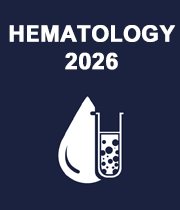Clonal Tracking & Gene Therapy
CHIP stands for clonal hematopoiesis of undetermined potential, which occurs when hematopoietic stem cells (HSCs) or other early blood cell progenitors contribute to the creation of a genetically unique subset of blood cells. This blood subpopulation is defined by a shared unique mutation in the cells' DNA, as the name implies; it is assumed that this subpopulation is "clonally" produced from a single founding cell and hence consists of genetic "clones" of the founder. When a stem or progenitor cell develops one or more somatic mutations that give it a competitive advantage in hematopoiesis over stem/progenitor cells without these mutations, a clonal population can form. Clonal hematopoiesis can also occur without a driving mutation, thanks to factors like neutral drift in the stem cell population. Clonal hematopoiesis can happen in healthy persons, but it's also been shown in patients with hematologic disorders. The size of the clonal population varies depending on the person; it can be as small as 2% of the blood or as much as 100%.
Gene therapy is a branch of medicine that focuses on genetically altering cells to provide a therapeutic effect or heal disease by repairing or reconstructing damaged genetic material. Gene therapy is based on the idea of correcting a genetic disease at its source. If, for example, a mutation in a gene results in the creation of a malfunctioning protein that causes a hereditary disease (typically recessively), gene therapy could be used to deliver a copy of the gene that does not include the detrimental mutation and thus creates a functional protein.



Title : Acute intermittent porphyria: A neurological dilemma obscured by ubiquitous fgastrointestinal presentation
Mayank Anand Singh, Mimer Medical College, India
Title : Comprehensive symptom management and supportive nursing care in a preterm toddler undergoing HSCT for pyruvate kinase deficiency
Tran Thi Dung, Vinmec International Hospital, Vietnam